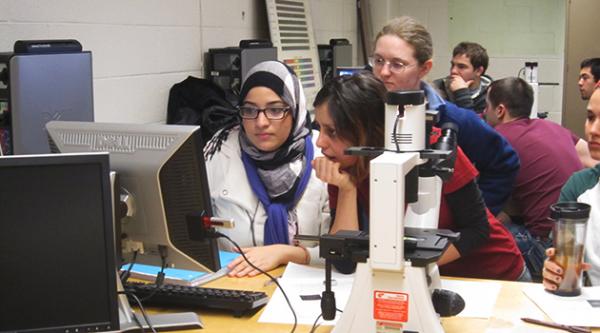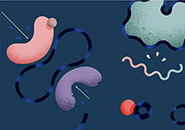 NEXUS NEXUS |
 |
Science changes daily, but science courses offered by many universities have been the same for decades. Creating a curriculum that reflects the interdisciplinary, dynamic nature of science has become a top priority for many colleges, universities, and scientific societies.
Working together, four universities will create a curriculum that connects biology with physics, math, and chemistry. Each institution is responsible for a different aspect of the new curriculum:
- Purdue University: Integrating biology into chemistry
Purdue is revising the introductory chemistry curriculum to include more biological chemistry with a focus on active learning approaches. - The University of Maryland, Baltimore County: Infusing math into biology
UMBC is incorporating mathematical modeling into their introductory biology course, including quantitative reasoning skills and mathematical approaches, to help students understand biological processes and living systems. - The University of Maryland, College Park: Teaching the physics of life
UMCP is revising the introductory physics course for biology majors to present physics concepts in a biological context. - The University of Miami: Using case studies to integrate scientific disciplines
The University of Miami is developing biomedical case studies that will challenge students to use scientific inquiry to analyze the biology, physics, chemistry, and math involved in human health and disease.
The goal is to create a curriculum that can be used at variety of schools serving diverse students.



